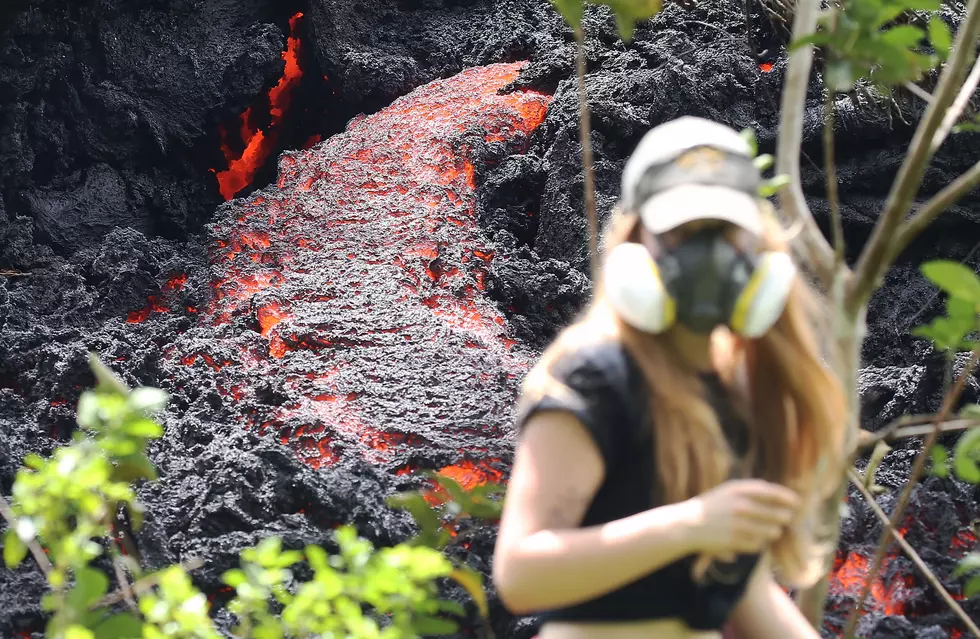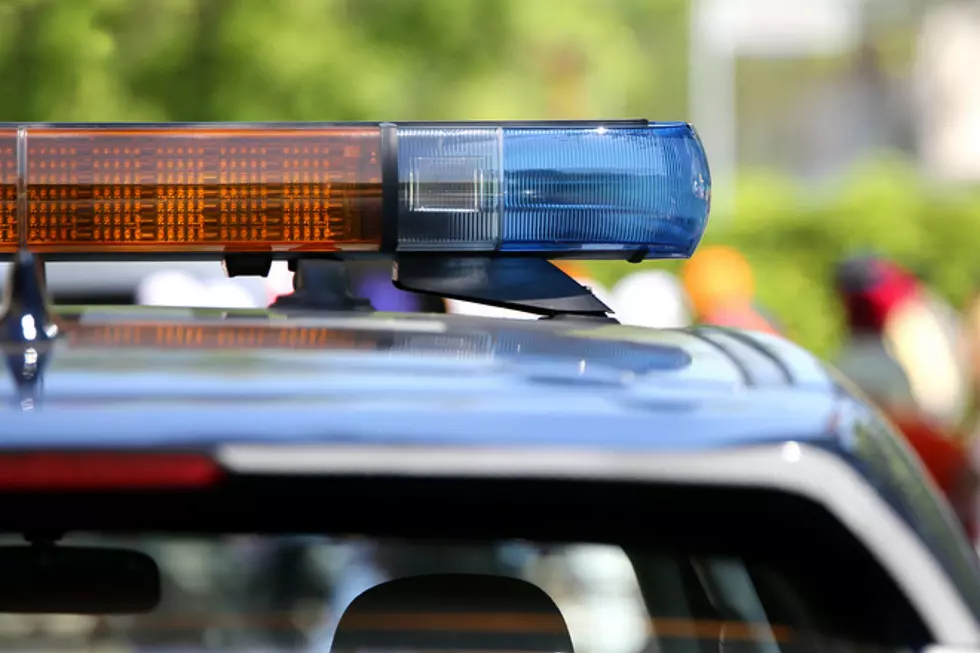
A Mainer in Hawaii Discusses The Impact Of The Raging Volcano
I have a lot of friends that are far more adventurous than I am. I feel like I talk big, but ultimately, I always feel really safe right here close to home. In Maine, we're largely spared things like intense earthquakes, hurricanes, tornadoes, and such. Even poisonous snakes are off the list. Generally, the biggest thing we worry about around these parts is how bad the ticks and mosquitoes are going to be every year.
I have friends that travel all over the world. Everywhere from India, to Palestine, to Iceland, to Norway....everywhere. So I guess it's no surprise that I have a friend who's currently living in Hawaii in the midst of all this chaos they're having with Mt. Kilauea on the big island of Hawaii. My friend Brent has been living for a bit on Maui, so he's safe from all that's going on.
But I've been exchanging some emails back and forth with him, because I've just been so curious what it's like to be so close to something so insane. Imagine in Maine, if you woke up one morning, just to find out Sand Beach in Acadia had basically just been filled in and wiped out and was no longer there. That happened there. Kapoho Bay is gone. It was a popular spot to visit for both tourism, and of major historic significance to the cultural spiritualism of the big island of Hawaii.
Or even try to imagine that you found out that Moosehead Lake had just literally evaporated and was gone because of the lava flows. These are the sorts of things that locals are dealing with every day. Not to mention what it's doing to homes in the region as well. Brent sent this in a message:
...Current estimates are that over 700 homes have been destroyed, and though the official estimates are closer to 550, those figures are always about 48 hours behind, and they only include permitted residences (there are quite a few illegal dwellings in this area). There's no sign of the eruption easing anytime in the immediate future, so the displacement of residents and reshaping of the landscape will continue unabated for a while yet.
I can't even wrap my head around this sort of thing. What would you do if some 700 homes in Bangor were just gone, as well as a huge portion of the landscape, and all the places you treasured growing up.
On the other islands where they are directly affected by the lava flows, there's certainly a lot to deal with day to day. There's a lot of "vog" and "laze" in the atmosphere. Vog is more technically defined this way by the Hawaii State Department of Health:
The term ‘vog’ refers to the hazy air pollution caused by the volcanic emissions from Kīlauea volcano, which are primarily water vapor (H2O), carbon dioxide (CO2), and sulfur dioxide (SO2) gas. As SO2 is released from the summit and east rift eruptive vents, it reacts in the atmosphere with oxygen, sunlight, moisture, and other gases and particles and, within hours to days, converts to fine particles, which scatter sunlight, causing the visible haze that is observed downwind of Kīlauea.
Laze, or lava haze, is similarly difficult on residents and is defined by the Mother Nature Network as:
As the ocean boils from the intense heat, molecules break apart, and two in particular are what make laze so dangerous. Super-heating the water causes the water molecules to eventually break apart and become a gas, or steam, so the water molecules are broken apart into hydrogen and oxygen atoms. The chloride in the sea salt ends up bonding with these loosed atoms, and the result is plumes of hydrochloric acid. As if that weren't bad enough, the laze contains a couple of other unpleasant elements in addition to the hydrochloric acid. There are also "tiny volcanic glass particles" making laze a cloud of acid and jagged bits of matter. Even if you're not near the coast, winds can carry laze miles and miles inland.
Brent describes the situation as it affects him, and the other residents of Maui. It sounds unpleasant to say the least. I mean, if you like choking while you breathe from time to time, then why not?
At night, as the winds relax, and on days when the trades fail to gather their usual ferocity, the vog encroaches and hangs low over the island. Views that are normally crystal clear are thus nearly impossible to interpret, and the air begins to cause very faint burning sensations with normal breathing. Those with respiratory issues are urged to stay inside and to avoid strenuous work. Its very similar to the haze that often creeps into Maine from the southeast in the summer, but whereas the New England haze is mostly a nuisance to some, vog is much more sinister.
It would be easy to dismiss the people that live here, and are affected by such a catastrophic natural disaster. I've been guilty myself, of wondering out loud, why people would live in the known path of tornadoes and hurricanes, etc.
So maybe it's not fair to blame people from wanting to live in a paradise. One could argue we live in a paradise right here. I'm just glad I don't have to wake up to discover half of my state gone, because that has to be the worst feeling of all.
More From WQCB Brewer Maine









